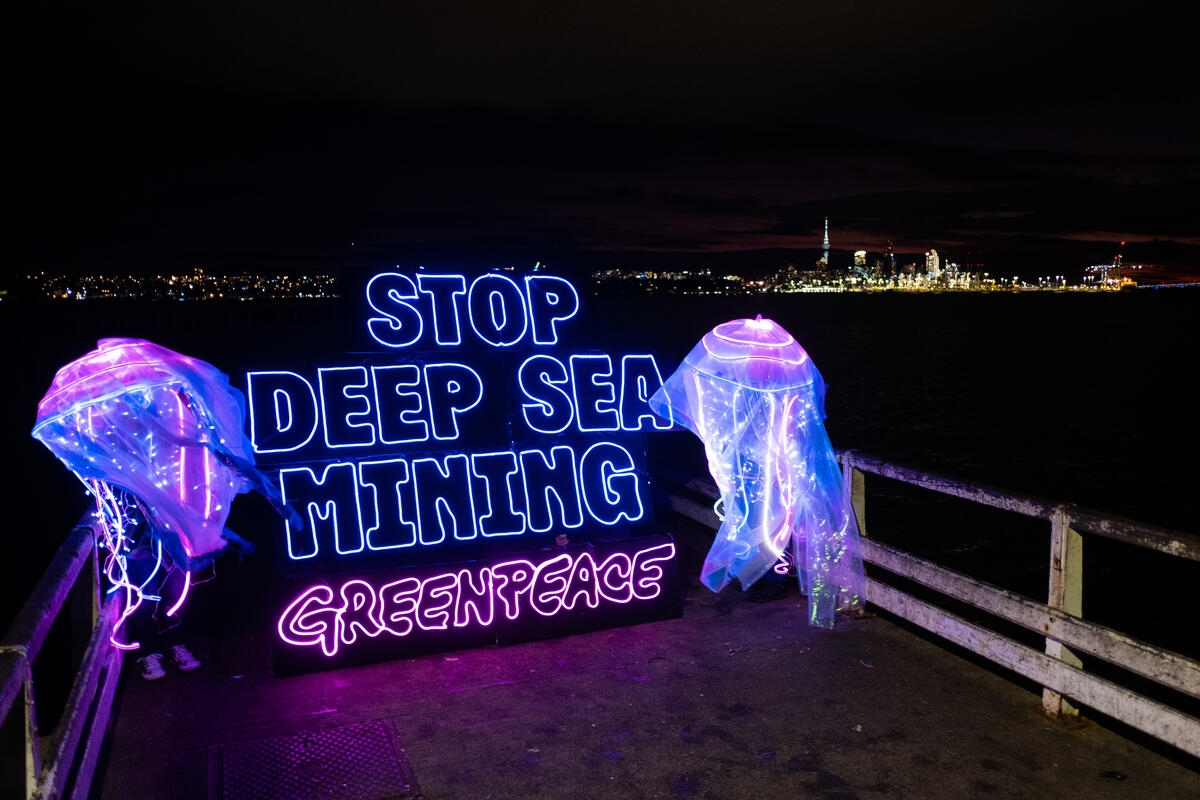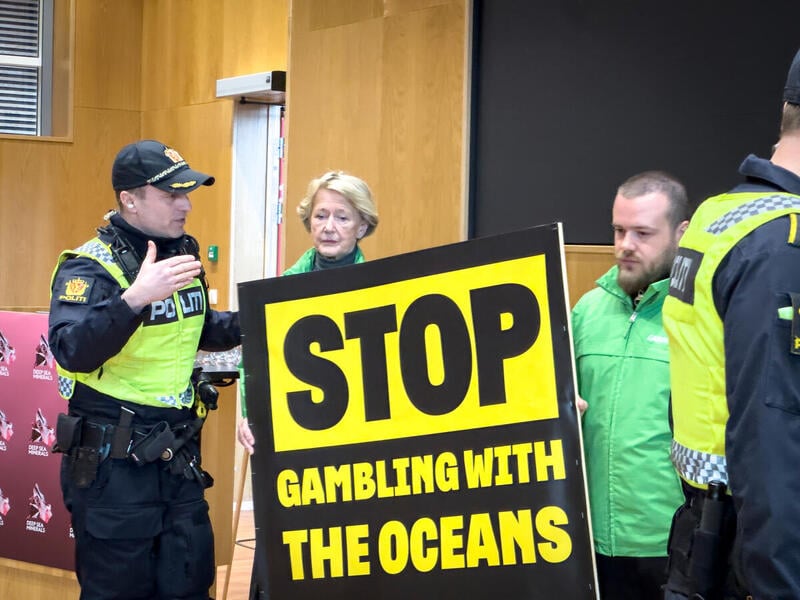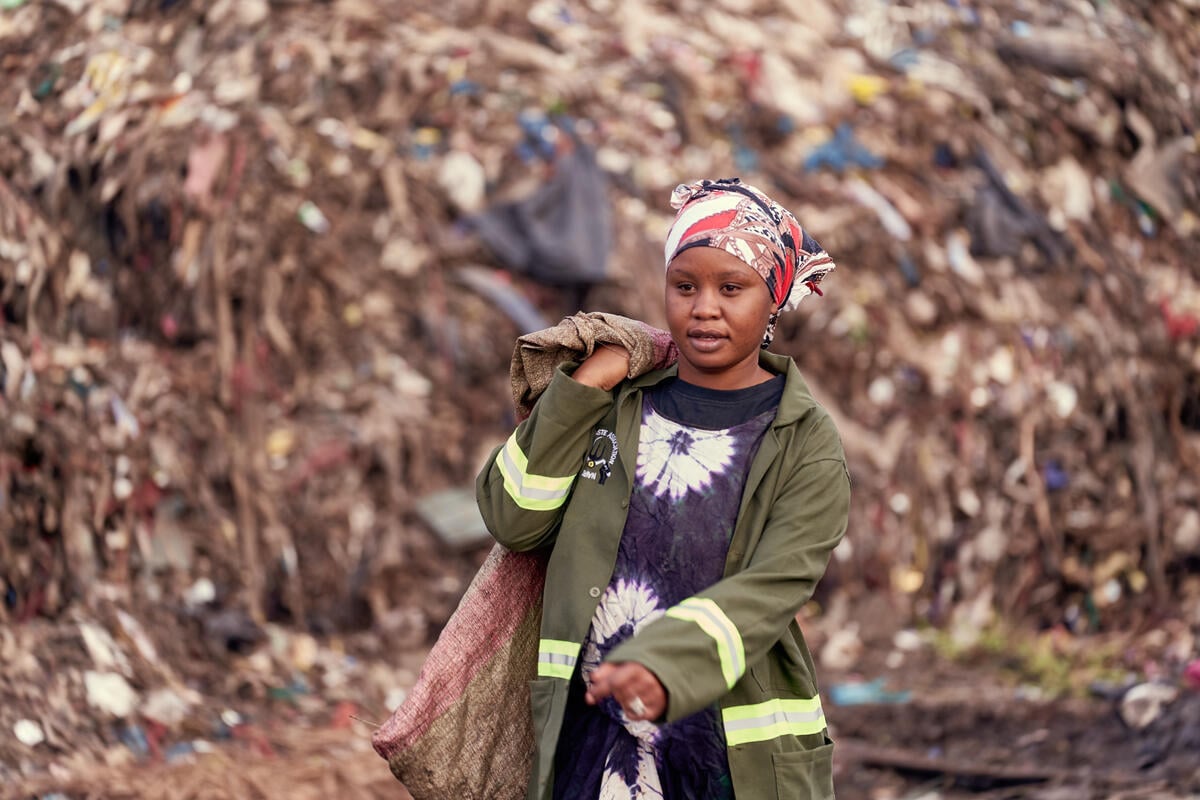Bremen, 1 June 2017 – Greenpeace Germany activists took to the water today in protest against the world’s worsening marine plastic pollution crisis and called on the G20 countries to take concrete steps to adopt solutions and reduce the use of plastics.
As high-level G20 administrators met to discuss the marine litter crisis, 50 activists in bright red survival suits formed the letters ‘ACT’ in the waters of a lake near the conference venue in Bremen. The activists also unfurled a banner reading ‘for plastic-free oceans’.
“Our oceans and the marine life that call them home are choking on throwaway plastics as an estimated 8 million tonnes of this waste washes into the sea from land every year. This is a rapidly worsening crisis and actions not words from governments are urgently needed to resolve it. As the world’s most developed nations, the G20 countries have a responsibility to show leadership and to adopt legally-binding solutions,” Greenpeace oceans expert Thilo Maack said.
Greenpeace is calling on governments to ban key sources of marine plastics as a crucial first step, including phasing out single-use plastic items, such as packaging and microbeads. Any company or business producing plastic items, such as packaging, must be held to account under mandatory Extended Producer Responsibility (EPR) to contribute to the solution.
“We cannot recycle our way out of the plastic litter problem. Governments are too quick to turn to recycling and should instead prioritise the waste management hierarchy through prevention at source, followed by reuse and then recycling,” Maack said.
Plastic has flooded our daily lives, reflective of a throwaway culture since much of the plastic is used to manufacture a variety of single-use items including packaging.
Global plastics production has skyrocketed in the last 50 years, and especially in recent decades. In 2002-2013 alone, it increased approximately 50 percent to 299 million tonnes from 204 million tonnes. This figure is expected to exceed an estimated 500 million tonnes per year by 2020 (1), which would represent a 900 percent increase on 1980 levels.
No definitive figure on the abundance of plastic in the world’s oceans exists, but 60-80 percent of marine litter is estimated to be plastics. Approximately 4 to 12 million tonnes of plastics enter the ocean every year (2). And only about 14% of plastics is recycled (3).
“Innovation and implementation of alternative delivery systems and substitution of microbeads with sustainable materials is the key”. Mandatory phase out timelines would strongly motivate innovation and if supported by a G20 competition to identify and implement the best innovative solutions, this would contribute far more than continued talks. It is time for solutions,” Maack added.
ENDS
Notes:
1. Global Ocean Commission, 2015 “Plastics – Keeping them out of the ocean”
2. Jambeck et al, 2015 “Plastic waste inputs from land into the ocean” Science Vol. 347 Issue 6223
3. Ellen MacArthur Foundation “The New Plastics Economy: Rethinking the future of plastics” (2016)
Images and video:
Photos: here
Video: here
Contacts:
Thilo Maack, Oceans Campaigner, Greenpeace Germany: [email protected], +49-171-8780841
Kevin Stairs, Political Advisor, Greenpeace EU: [email protected], +32-476-961376
Antje Rudolph, Press Officer, Greenpeace Germany: [email protected], +49-151-42261551
Video Producer, Greenpeace Germany, mob: +49-175-5891718
Photo Editor, Greenpeace Germany, tel: +49-40-30618-376 Greenpeace International Press Desk (24hrs): [email protected], +31-207182470



